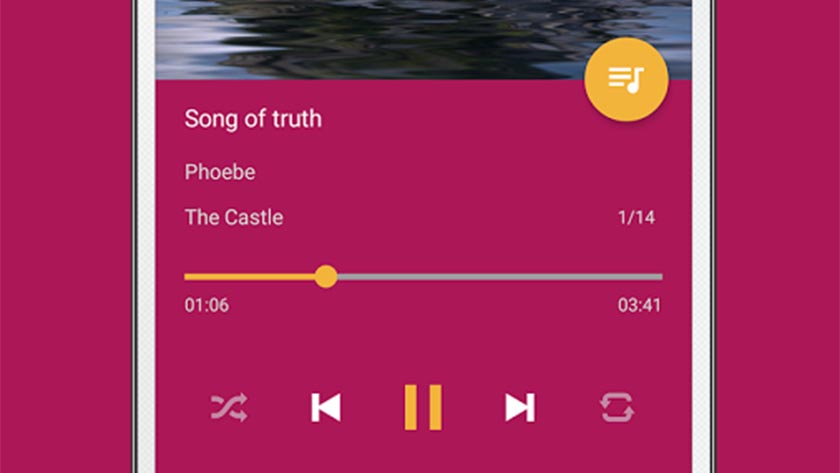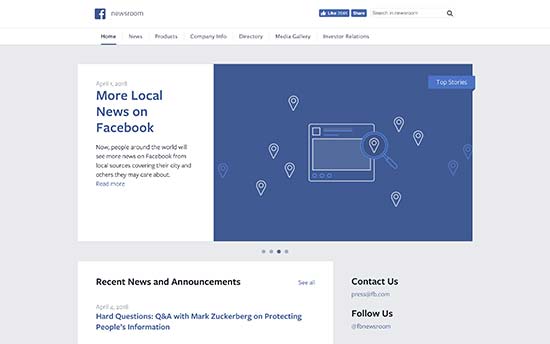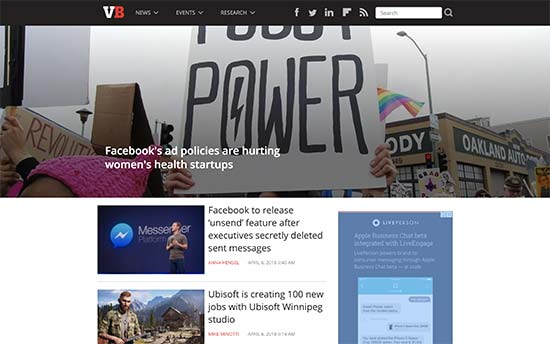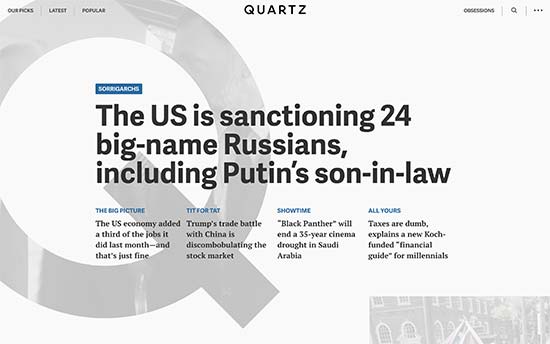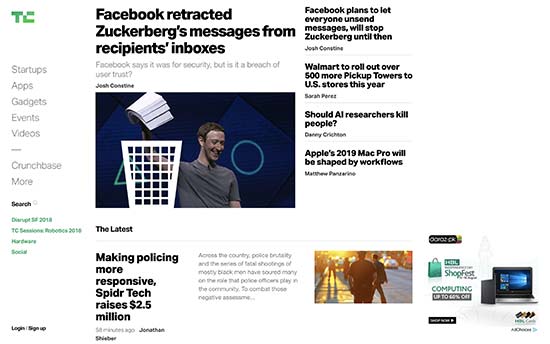
At the end of 2017, I went to see the brooding gothic rock band A Perfect Circle in concert. It was my first time seeing the group live after being a huge fan for the past 18 years, so I was understandably excited.
However, when I arrived at the venue I was shocked to see signs everywhere saying that there would be no smartphone usage allowed during the concert. The signs explained that any smartphone use of any kind — not just photography, but texting, phone calls, etc. — would result in one warning. A second warning would result in a staff member escorting you out of the venue.
Valkyrie: a portable speaker that is louder than a concert
Forget all those fancy features and cute designs. If what you want is the biggest, loudest, and baddest portable speaker in the market, we might have found the one. This accessory is named Valkyrie and …
Along with the signage dishing this info, the person who frisked me as I entered the arena told me about the policy, as did the person who scanned my ticket. Even the person who showed me and my girlfriend to our seats made sure we knew the rules.
Before A Perfect Circle took the stage, an announcement was made emphasizing the rule: no smartphone displays should be visible until the end of the concert, period.
Somehow, even with all that warning, a couple in front of us were escorted out of the venue after their second infraction of the rule. I’m sure there were others as well that I didn’t notice in the huge arena (I was watching the show, after all).
These people probably spent close to $100 for each of their tickets, and they got booted out before the end of the show because they couldn’t follow this one simple rule.
A growing trend
 Rolling Stone
Rolling Stone
A Perfect Circle is not the first musical group to adopt this strict “no phones allowed” policy. Maynard James Keenan’s other bands like Tool and Puscifer enforce the same rules at their shows. Jack White, formerly of The White Stripes, has a similar policy during his performances, as do many others.
10 best music player apps for Android
A lot of folks these days have transferred to some sort of music streaming service like Pandora, Spotify, Google Play Music, or Apple Music. However, there are those of us left that hang on to …
It’s not just musical groups, either; prominent comedians also have phone restriction policies. Chris Rock went so far as to have people lock their phones in zipper pouches supplied by the venue, and several members of the audience at a recent Kevin Hart performance were told to leave the venue after breaking Hart’s posted “no phones” policy.
Chances are good that at one of the upcoming live events you attend, you will be faced with this policy if you haven’t already.
As with most things, there are two sides to the debate when it comes to whether phone restriction policies at live events are a good idea or not. Let’s look first at the anti-restriction argument.
Phone restriction policies are a bad idea

The most obvious argument against phone restriction policies is the fact that the audience is paying to be there, sometimes in incredibly excessive amounts. If someone pays money to enjoy something, they should be able to enjoy it how they like.
Granted, how someone enjoys a concert shouldn’t infringe upon someone else’s enjoyment of the concert, which is why so many different safety and security policies are in place at most events. If your idea of a good time at a concert is wildly jumping around pouring beer all over everyone, it’s obvious why that isn’t going to fly, even if you paid $1,000 per ticket.
10 best texting apps and SMS apps for Android
Text messaging is among the most popular ways to communicate in the whole world. It’s quick, easy to do, and it doesn’t require you pausing what you’re doing like phone calls do. We do understand …
But it would be difficult to argue that taking out your phone to send a quick text during the show would drastically infringe upon someone else’s enjoyment of the performance.
On the same note, what if you receive a very important message during the concert? This is 2018 after all, and our hyper-connected world creates an environment where we are expected to be accessible 24 hours a day. What if someone messages a concert-goer with incredibly time-sensitive information? It doesn’t seem fair that they should have to neglect that message, especially because — once again — they are paying to be there.
Finally, one could also argue that phones are ubiquitous and any attempt to deny that is futile. In other words, we are with our phones every minute of every day and performers can’t expect us to change how we live our lives just to see them play some music or say some funny one-liners.
These are all very good reasons to be opposed to phone restriction policies at live events. Unfortunately, I don’t think these arguments can hold a candle to the opposite side of the debate.
Phone restriction policies are a great idea

The primary reason performers want to restrict smartphone usage during their performances is for the protection of their art. In the case of musical artists like A Perfect Circle, a shoddy smartphone video of their concert could give any YouTube visitor the impression that their show sounds and looks as bad as the potato-quality footage that some random user uploaded to their account.
Your next Samsung phone could be a low-light beast thanks to new ISOCELL Plus tech
Samsung’s ISOCELL technology is a common fixture in smartphone sensors, but has just announced its brand-new ISOCELL Plus technology. This tech promises improved color accuracy and better light sensitivity from upcoming smartphone cameras.
In current ISOCELL …
Smartphone recordings also expose things about performances that the artist might not want making the rounds online for free. In the case of comedians, their comedic material might not change much from night-to-night, so if a person uploads their set to YouTube the next crowd might already know all the jokes. It’s unreasonable to expect a comedian to develop new material for every single show, so Chris Rock’s zipper-bag policy makes a lot of sense.
With this in mind, some might argue that a “no recordings allowed” policy is more practical than a strict “no phones allowed” policy. But trying to enforce those policies is difficult because if everyone in the crowd has their phones out, how will an usher know who is recording and who’s just sending a text?
Even if you ignore the idea that performers should be able to control their own art when it comes to (oftentimes illegal) recordings of their shows, the use of smartphones can be distracting for the audience. How many times have you been to a concert and seen this?
 Grammy.com
Grammy.com
A large touring band can spend hundreds-of-thousands of dollars on their incredible stage production, and for what? For it to be ruined for the audience as they try to see through all the smartphones lit up in front of their faces? Not to mention that obstructing another audience member’s view of the stage falls under the category of one person ruining the show for another.
Finally, getting through a two-hour concert without using your smartphone is not exactly a new thing. Fifteen years ago, if you attended a concert, you wouldn’t see any phones on or up in the air, because smartphones weren’t even a thing. For the bulk of popular music’s history — from Frank Sinatra to the Backstreet Boys — people were able to happily attend concerts without having their smartphones out. Why should today be any different?
If you don’t like the rules, then don’t go

Maybe you don’t agree with the arguments I just laid out. Maybe you feel that no matter what, the idea of anyone — a famous person or otherwise — telling you when you can or cannot use your smartphone simply doesn’t sit with you.
If that’s the case, then you shouldn’t be at the concert.
Think of going to a live event like a concert or comedy show as stopping over a friend’s house for dinner. Imagine you enter your friend’s house and they ask you to take your shoes off because they want to preserve their floor. You’d take your shoes off, right?
How to transfer music from iTunes to Android
With modern technology, access to music has become quicker, easier, and nearly instantaneous. Especially with music-capable portable devices such as phones, laptops, and media players, which allow people to carry around thousands of songs in just …
Well, what if they asked you to put your phone away while you’re at the table because the house rule is that there are no phones at dinner? Would you put your phone away to respect your friend’s rules or would you deny them this very simple request?
Sure, the guys in A Perfect Circle aren’t my friends and they’re not serving me dinner (thankfully). But for the few hours that a concert lasts, I am a guest in their “home,” so to speak, and the rules of the house are that I can’t use my phone. If that doesn’t sit right with me then I should leave, because it’s not my place to tell them what their rules should be.
In fact, the only thing about my experience at the A Perfect Circle show that doesn’t sit right with me is that I didn’t know about the phone restriction policy until I got to the venue. By the time I was there and ready to walk into the arena, it would be too late for me to say, “No, I don’t want to go because I won’t be able to use my phone.” In that respect, improvements need to be made to make ticket buyers more aware of the policy while there’s still time to either get a refund or resell the tickets.
Barring that though, I’m glad I got to see one of my favorite bands in a smartphone-free zone. I sincerely hope that I get to attend more concerts with similar phone restriction policies.
NEXT: 10 best musician apps for Android
Source: Android Zone
The post Phones at concerts: If the artist says ‘no phones,’ then you should put it away appeared first on TuneMaster.ml.






